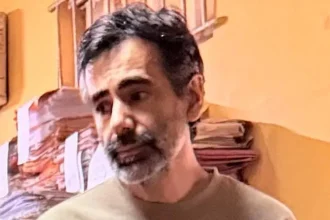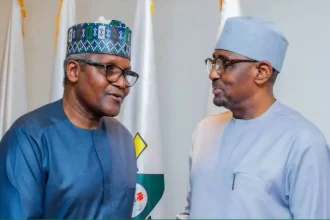The Chairman of the Economic and Financial Crimes Commission, Ola Olukoyede, has raised concerns about the escalating global threat of cybercrime, warning that losses could reach $10.5 trillion worldwide.
Speaking at a national cybercrime summit in Abuja on Tuesday, Olukoyede highlighted that 2,328 cybercrime cases are recorded daily, making it a significant threat to economies worldwide.
In Nigeria alone, he revealed that over $500 million was lost to cybercrime in 2022.
“These are the realities driving the commission’s fight against these crimes,” he said, adding that cybercrime suspects accounted for a significant portion of the 3,455 convictions secured by the EFCC during his first year in office.
Olukoyede made the remarks during a summit organised by the EFCC in collaboration with the European Union-funded Rule of Law and Anti-Corruption Programme of the International IDEA.
The event brought together governors, experts, and industry leaders to discuss the country’s cybercrime crisis.
Despite these concerns, some attendees emphasised that simply arresting offenders is insufficient to address the issue.
The Minister of State for Youths, Ayodele Olawande, urged the government to adopt more creative initiatives to combat cybercrime, mainly focusing on youth engagement and education.
“It’s not about the bombardment of houses,” Olawande said.
“It’s bringing up initiatives and ideas that will encourage a lot of young people.”
In his address, Olukoyede shared plans to establish a Cybercrime Research Centre in partnership with a Nigerian fintech company.
The centre will train 500 young Nigerians in cybersecurity and cybercrime research to provide alternatives for tech-savvy youths who might otherwise turn to criminal activities.
Several state governors also pledged their support in the fight against cybercrime.
AbdulRazaq AbdulRahman, Governor of Kwara State and Chairman of the Nigeria Governors’ Forum, praised the EFCC’s efforts and urged a national consensus to combat the issue further.
Zamfara State Governor Dauda Lawal expressed his commitment to accountability and transparency: “People should be accountable. People should be transparent. That’s leadership.”
The Head of International IDEA, Danladi Plang, noted that cybercrime continues to rise as technology advances, especially among Nigeria’s tech-savvy youth.
He suggested that beyond arrest and imprisonment, more effort should be made to redirect the energy and skills of young people into positive, legitimate uses of technology.
As part of its broader strategy, the EFCC has established a Rapid Response Desk to handle cybercrime complaints in Nigeria and is actively pursuing partnerships to reduce the country’s vulnerability to these crimes.











